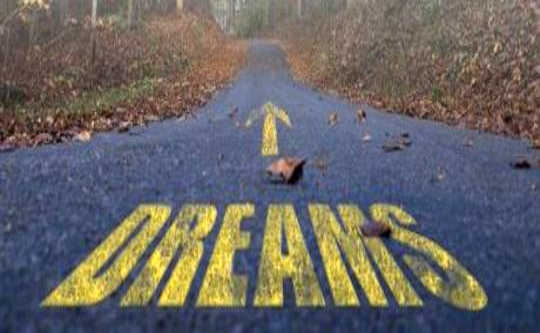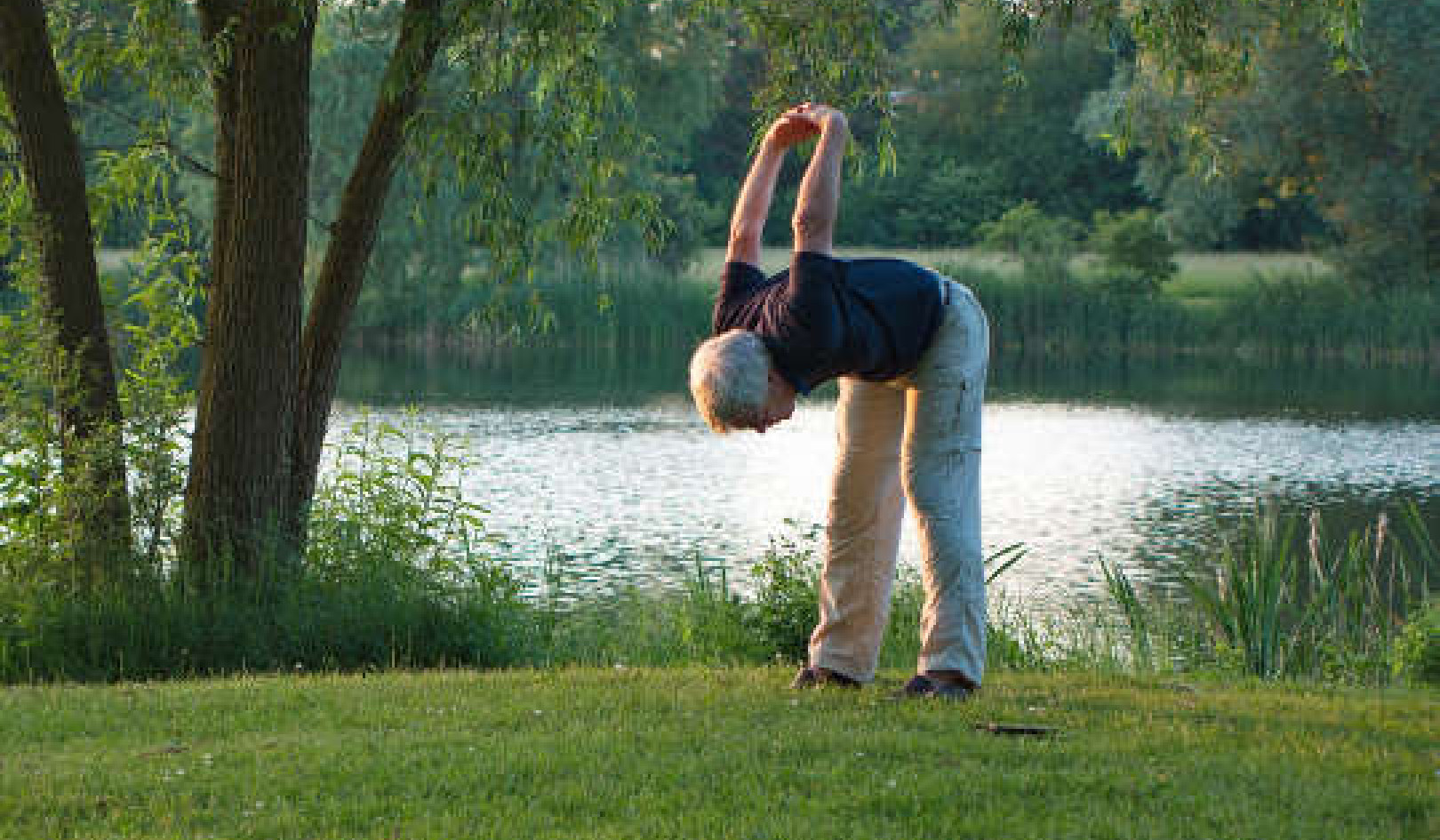
The straight-up and simple standard for right livelihood is that we find work that does not harm others and, ideally, which serves others with maximum benefit. That's pretty self-explanatory. We don't have to elaborate on the difficulties of attempting to be in the present moment if we're in the habit of pushing drugs at the local school or trying to market nuclear warheads to third world countries. If the work we engage gives us some degree of satisfaction and serves in general as a point of connection and opportunity for cooperation with others, then we're way ahead of the game.
The corollary of this principle is to consider the effect that our work has on us. Are we in a high-stress situation at work that makes it very difficult for us to remain present with ourselves or with others? What kind of company do we keep at our workplace, and if it is not good company, do we have the strength to practice while remaining in that atmosphere or, practically speaking, do we need a more supportive environment while we establish a foundation for our meditation practice?
Sometimes we don't have the luxury of choice when it comes to the specifics of our work environment or our work partners. Other times, we ourselves unconsciously seek out stressful circumstances to avoid having to become vulnerable to ourselves and others.
Many of the Eastern traditions that have been the birthing grounds of rich spiritual wisdom have been mimicked in form in the West while being misunderstood in context; we've thrown out the baby and kept the bath water. India, for example, is spiritually rich in tradition, but not oriented toward material riches as a culture. The combined result of this circumstance was asceticism -- wandering beggars who renounced all possessions as a formal declaration of their dedication to spiritual practice.
The relinquishment of possessions was intended to symbolize the surrender of personal identity. Yet we in the West imported only the poverty aspect of the ascetic equation and mistook it for the essence of India's spiritual teaching. This alongside Jesus' admonishment that a camel can fit through the eye of a needle sooner than a rich man can get into heaven, and suddenly our entire culture has shackled poverty to the ankles of spirituality and now we are tripping all over ourselves.
Spirituality and Energy
One of the fundamental teaching lessons which Indian spiritual master Osho (Rajneesh) demonstrated consistently was that spirituality and poverty not only are not synonymous but are, in fact, in direct opposition. He became famous in America for his collection of Rolex watches and Rolls Royce cars. Having been a resident myself at the Oregon property while he was active there, I witnessed how adamant he was about wanting to address the insidiousness of the "spirituality equals poverty" equation.
Spiritual practice requires energy. Money and material goods, used skillfully, are valuable resources. In fact, if we wish to make any headway in our practice life, we could do with an abundance mentality in all areas of our lives. The mentality of abundance gives us a foundation on which we can build toward the skillful use of various types of energy assets and toward learning the kind of good husbandry of those resources which will benefit the path. If we're coming from a place of scarcity -- financially, emotionally or physically -- we have little to work with for practice.
Often those who would be able to engage in spiritual practice are not willing, and those who are willing are not able. By virtue of our fortuitous circumstances in Western culture, many of us have been given the ability to practice; we are endowed with the basic education, maturity and earning potential that could support spiritual life. Our willingness depends upon to what extent we're inclined to dedicate those circumstances to this end.
What, for instance, do we do with the free time we earn from working hard? Do we waste that time in idle pursuits? Would we be willing to devote our precious vacation time to a meditation retreat or to a four-day workweek that would allow us time for study, exercise, and meditation?
But even if we set aside time for formal practices, or manage to arrange an occasional retreat time, we are not a culture of ascetics. We're not going to last very long going door to door with a begging bowl, eschewing the responsibilities of an ordinary householder so we can meditate day and night. Once again, the name of the game for us in the West is integration.
To integrate the essential value of asceticism is how we get the baby back and let the bath water go. Finding that essential value requires that we make a distinction between actual life-in-a-loincloth renunciation and our willingness to renounce anything that compromises our ability to be present in any given moment. Fundamentally, we're speaking about examining our attachments and confronting them with an investigation of our motives and hidden agendas. What are we afraid of losing? What are our material attachments a replacement for?
Our Attitudes About Energy and Abundance
The reality of our lives at the level of money is very telling of our attitudes about energy, abundance versus scarcity, and success. We can hardly move forward effectively with our spiritual practice if we're harboring deep-seated emotional wounds which demand that we remain in scarcity in order to honor a pact we made with our father when we were three. Maybe we unconsciously agreed to never be more successful than he was. Or perhaps our parents wanted nothing more than our own success at a financial level, yet their neglect of our emotional needs led us to express our anger by defying their material orientation to the world. On the other hand, we may be so attached to our earning potential and to climbing the corporate ladder that the integrity of our practice life is undermined by our inability to stop accumulating and achieving.
Success on the spiritual path, whether we are attempting to generate profit for our own evolution or make progress on the path possible for others, depends upon our ability to shrewdly manage an energy balance sheet. As in business, if we want Spirit Inc. to grow, we have to wisely manage the company's resources, saving where appropriate, spending where appropriate, making the right short- and long-term investments, and acquiring assets.
Right livelihood is one such asset in the successful organization of presence. My teacher recommends to his students that they find work that yields the most amount of money in the least amount of time. Of course, that work has to be legal, and not just legal from the standpoint of legislated law, but legal in the context of spiritual law. If making very good money in a minimal amount of time involves acting with a lack of integrity that deepens our own sense of separation from others; creates mistrust, fear and anger in them; or even takes advantage of others without their knowledge, we are not operating within the legal limits of our practice.
A life of right livelihood can serve as the offering that a dedicated practitioner makes to be a bridge between the needs of evolving consciousness and the resources of the material world. This is the crucial difference between the cultural context of asceticism in the East and the spiritual context of renunciation that is appropriate for us in the West.
Letting Your "Dog" Free
It's much like the relationship a hunting dog has with its master. If we have one eye glued to our intention for spiritual practice, then presence becomes the master. We then allow the "dog" -- which may be our passion for, skill at, or interest in earning money, developing property, writing, or cooking healthy food -- plenty of leash. We allow the dog to hunt and retrieve energy in the form of wealth, beneficial circumstances, networks of individuals, or educational resources, but at the same time we train the dog to bring that which it tracks to the feet of our intention to practice. So the "dog" never keeps and eats these things for itself, but delivers them for us to make best use of them and to integrate them into our lives.
If we borrow the Eastern cultural model of asceticism, we wind up training the hunting instinct out of the dog altogether, training him not to bark or taking him to the vet to be neutered, which doesn't help us renounce or transcend anything in our culture. It only represses our own preestablished cultural drives, which are basically life positive-drives to contribute within the context of our own culture, to evolve and expand ourselves.
On the path we come to view wealth not from the perspective of holdings or portfolios, but as an ability to participate, to give and receive. Wealth then is redefined as a system with a lot of energy flowing through it. When we know how to earn and how to spend and invest wisely, we become responsible for the living process or flow that is actual wealth. The acquisition, nurturing and deployment of energetic resources on behalf of presence is right livelihood.
Reprinted with permission of the publisher,
Hohm Press. ©2002. www.hohmpress.com
Article Source:
You Have the Right to Remain Silent: Bringing Meditation to Life
by Richard Lewis.
 Offers a comprehensive look at everything a beginner would need to start a meditation practice, including how to befriend an overactive mind and how to bring the fruits of meditation into all aspects of daily life. This book includes insights and practical examples, together with anecdotes from the lives of masters and students of many traditions.
Offers a comprehensive look at everything a beginner would need to start a meditation practice, including how to befriend an overactive mind and how to bring the fruits of meditation into all aspects of daily life. This book includes insights and practical examples, together with anecdotes from the lives of masters and students of many traditions.
About the Author
Rick Lewis is the author of The Perfection of Nothing: Reflections on Spiritual Practice, and a longtime student of spiritual work. He works as a professional writer, speaker and entertainer. His twenty-five years of disciplined sitting practice allow him to clarify common myths and confusions about meditation and its applications to life. Rick is based in Vancouver, B.C.



























